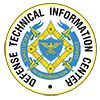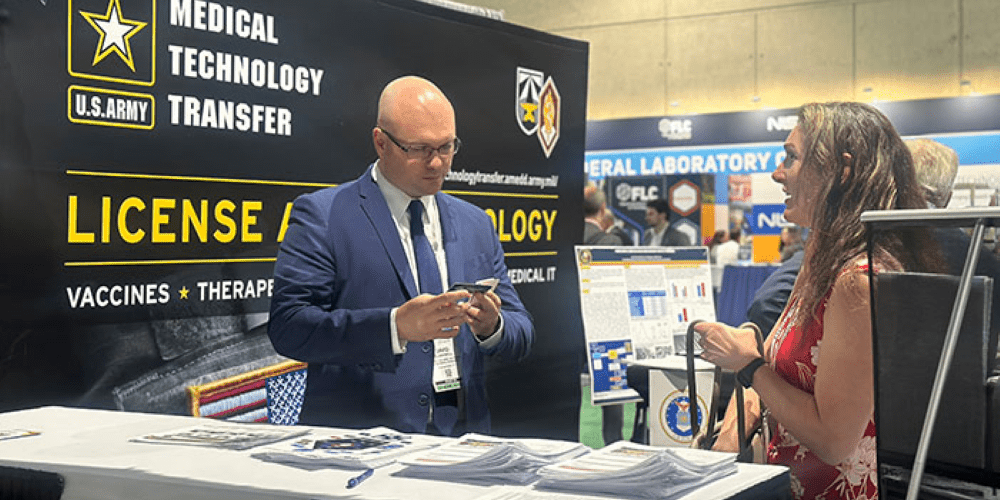FORT DETRICK, Md. — Representatives from the U.S. Army Medical Research and Development Command’s Medical Technology Transfer Office showcased new biomedical technologies available for commercial licensing and discussed collaborative opportunities with biotechnology industry representatives from around the world at the Biotechnology Innovation Organization’s annual convention in San Diego, California, June 3-6.
A new vaccine designed to blunt the effects of fentanyl overdoses developed by MRDC’s Walter Reed Army Institute of Research in partnership with the National Institute on Drug Abuse and the Henry Jackson Foundation was a widely discussed new medical products at the MTT’s booth at the event’s Defense Health Agency pavilion. Other biomedical technologies for which MTT is seeking partnerships with commercial manufacturers include the Automated Processing of the Physiological Registry for Assessment of Injury Severity Hemorrhage Risk Index, the first triage system ever cleared by the FDA for assessing hemorrhage risk of trauma patients; the Ocular Chemical Injury Active Neutralization Ring, designed to help doctors and medics save the eyesight of Warfighters exposed to harmful chemicals on the battlefield; and a wearable head trauma diagnostic device that uses ultrasound to allow medics and first responders to quickly diagnose and constantly monitor head injuries.
Attendees were eager to learn about the MTT’s Assistive Technology Transfer process, or AT2, which connects inventors with expert assistance at each stage of their inventions’ development, particularly during the critical early stages of prototyping and field testing. AT2 helps them identify and gain access to funding sources, meet experts who can answer questions about regulatory and licensing requirements, obtain resources for developing and testing prototypes, and assist with military and civilian sales and licensing, among other support. This helps ensure that the new technologies will be mature and ready for manufacture, increasing the likelihood that they will be licensed.


